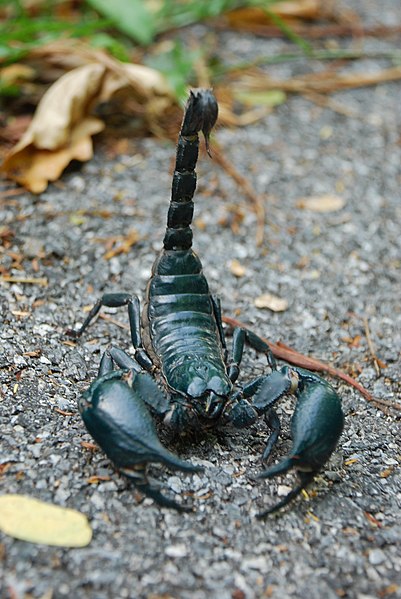Read Part 1.
Claiming the parts of us that are disruptive, toxic, and at times underhanded is not easy or pleasurable, though it is empowering in the best sense of the word. Whenever we find ourselves repeatedly experiencing the same conflict, rejection, hurt, or even a simply bizarre and confusing relationship, the early tendency is to surrender power by blaming the other people or some vague fate or “universe.” “I don’t know why the universe keeps sending me passive-aggressive people.” If some outside fate is responsible for doing this to you, the best way out is to wake up to your participation in the problem. If every partner eventually turns passive aggressive toward you, perhaps your scorpion is an aloof assertiveness without listening to what the other person says or needs. Identifying this role is challenging, it requires our willingness to accept that we have flaws and blind spots and to work hard at letting those come to awareness, but once known, we have our power back. Now it’s not someone else doing something to us. We can change the script.
Relational problems often come from the problematic dynamic between the people involved. This requires a caveat, however, when looking at relational problems between different levels of systemic privilege and power. Abusers of all stripes tend to use their physical, social, and economic power to subtly intimidate and groom their victims, separating them from their supports, isolating them, convincing their victims they have no protection other than to give in to what the abuser wants. A child does not take part in their victimization by an adult, a child cannot “seduce” an adult with the informed consent that adults can have when seducing each other. A victim of domestic violence is not necessarily responsible for their victimization. A person who has been traumatized in this way might have difficulty avoiding being retraumatized due to the injuries to self and psyche sustained during previous traumas. Once the abused person is out of the abusive situation, they need compassion and support while repairing themselves and developing the resources necessary to avoid further abuse. I know this is not a pleasant digression, but I want to be clear that saying “everyone contributes the same amount to the relationship problem” is not helpful when violence, intimidation, and coercion are involved.

Returning to the power of claiming our scorpions, we often feel the urge to punish ourselves for having these scorpions or try to get rid of them. I find naming more productive than attempting to disown or expel, because these scorpions are not easily cast out nor are they without value. As with many things in the personality, when we can name our poisons we can also find the salves that are also within. If I can recognize that I am avoiding a situation and causing harm, I can also find the power of confrontation and facing the difficulty. Powers of malicious gossip also contain the powers of telling powerful, healing truths. We can meet our tendencies to shame and judge with the powers of compassionate thinking.
One of my young cousins once called me “Mr. I-Know-Everything” and it was true. He was pointing to my aloof, superior outward disposition that I fell into when I was uncomfortable and insecure. Such superiority erodes connection and trust and nourishes resentment, which of course does not help me to feel any less uncomfortable and insecure. I’ve become aware of situations where I’m likely to fall into this pattern, and when I use the word “Actually—” to start a sentence, I know the likelihood is that what’s about to follow is a know-it-all “correction.”
The salve to this scorpion’s poison, for me, is equanimity, practicing acceptance that I am okay the way I am and you’re okay the way you are. What I find is that when I connect with the salve, then I can go ahead with less drama and hurt. Instead of “correcting” someone, I might instead ask more questions about their beliefs and information, or state my own beliefs as an offering that they can accept or not. Best of all, if I can name and accept this scorpion as my own, I am more open to being called out when someone else sees its stinger poised to strike. If I can accept that my perspective is informed by a racist culture, such as, then I can better accept being called out for saying or doing something racist without getting so defensive.
Who are your scorpions? What causes them to lash out? What salves relieve the poison?

